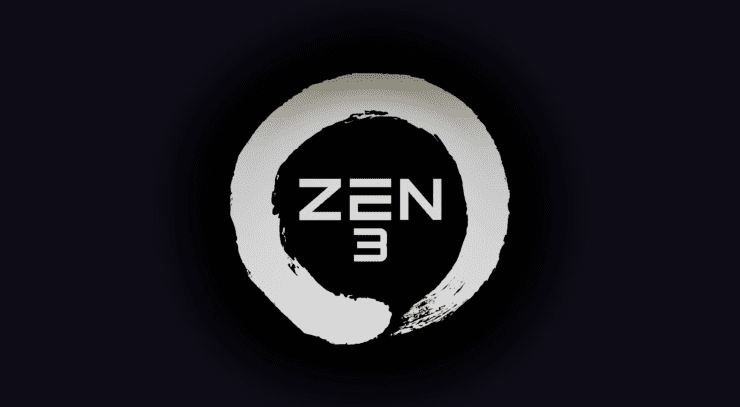
AMD’s next-generation Zen 3 powered Ryzen Desktop CPUs are coming later this year. Succeeding the Zen 2 powered Ryzen 3000 CPU family, the new desktop processors are going to offer big gains in efficiency and IPC but it looks like we can expect a decent boost in terms of clock speeds too as reported by Igor’s Lab who has spotted the latest engineering sample of the flagship desktop CPU from AMD.
AMD Ryzen 9 4950X / 5950X ‘Vermeer’ Zen 3 Desktop CPUs Spotted – Has A Higher Boost Clock of 4.8 GHz in ES State Than The Ryzen 9 3950X
The AMD Zen 3 lineup of Ryzen CPUs is expected to launch later this year as confirmed by Dr. Lisa Su herself. AMD already has the first Vermeer CPUs being tested in their labs but it looks like a few chips have slipped by and information on these processors has started being shared around in the tech community.
One such sample along with its OPN code has been found by Igor’s Lab. The next-generation Ryzen CPU boasts 16 cores and 32 threads. Its OPN code is ‘100-000000059-52_ 48/35 _ Y’ & while it is still an engineering sample, it does give us an insight on what to expect from the final retail processors.
The most interesting thing about the OPN code is that it mentions the ES clock speeds for the chip which are faster than the retail Ryzen 9 3950X. For comparison, the Ryzen 9 3950X has a base clock of 3.50 GHz and a boost clock of 4.70 GHz. The Ryzen 9 4950X / 5950X ‘Vermeer’ Desktop CPU has a base clock of 3.5 GHz but a boost clock of 4.8 GHz or 100 MHz higher than the existing Matisse CPU which also happens to be the flagship part of the mainstream AM4 platform.
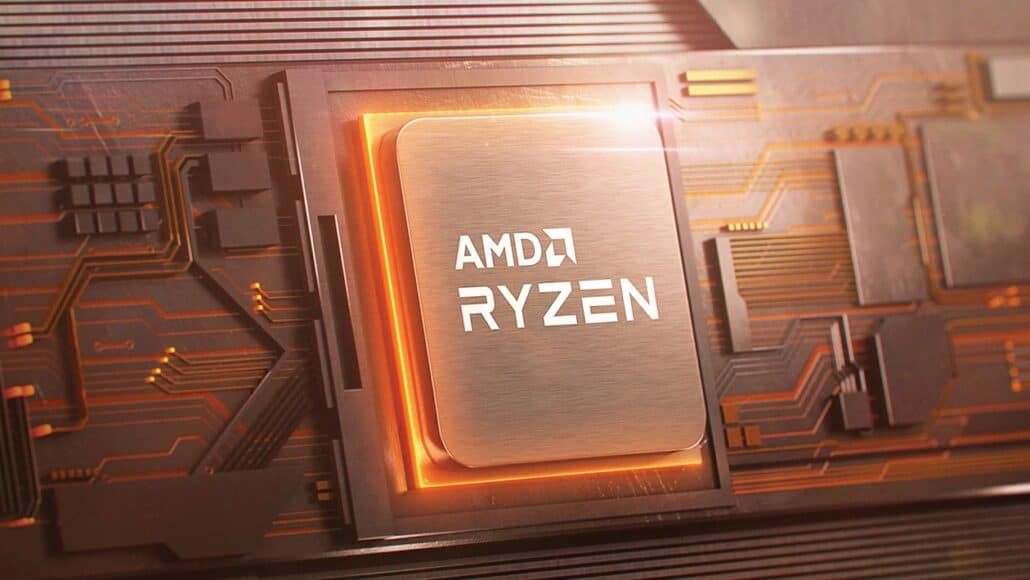
Considering that ES CPUs boast lower clock speeds than the final retail samples, we can expect the final clock speeds come real close to the 5 GHz figure which will put AMD in the same territory as Intel who has been enjoying 5 GHz on its desktop CPUs for a quite a while although on the more mature 14nm process node. AMD will be utilizing the 7nm+ process node from TSMC and if they do manage to hit 5 GHz clock speeds, it will just go off to show the superior design and technologies used to power the Zen 3 cores on a brand new and optimized process node.
Igor has also previously mentioned that the Zen 3 based Ryzen ‘Vermeer’ lineup is already in B0 stepping and going into mass production soon. He also referenced OPN’s of several 8 and 16 core chips, although in an earlier A0 revision than the one we are looking at today. These include the following:
- OPN 1: 100-000000059-14_46 / 37_Y (16 Cores)
- OPN 2: 100-000000059-15_46 / 37_N (16 Cores)
- OPN 1: 100-000000063-07_46 / 40_N (8 Cores)
- OPN 2: 100-000000063-08_46 / 40_Y (8 Cores)
- OPN 3: 100-000000063-23_44 / 38_N (8 Cores)
AMD Zen 3 Based Ryzen ‘Vermeer’ Desktop CPUs To Feature Ryzen 5000 Branding?
In addition to the engineering sample information, Chiphell’s leaker ‘wjm47196’ has stated that AMD might drop the Ryzen 4000 naming scheme for its Vermeer line of Zen 3 based Ryzen CPUs and instead go with the Ryzen 5000 naming scheme. That’s why the Ryzen 9 4950X and Ryzen 9 5950X names are mentioned within this post. However, that remains to be confirmed but the 4th Gen family naming scheme won’t change the fact that they are looking to be amazing CPUs for the high-end desktop community.
Here’s Everything We Know About The AMD’s Zen 3 Based Ryzen 4000 ‘Vermeer’ Desktop CPUs
The AMD Zen 3 architecture is said to be the greatest CPU design since the original Zen. It is a chip that has been completely revamped from the group up and focuses on three key features of which include significant IPC gains, faster clocks, and higher efficiency.
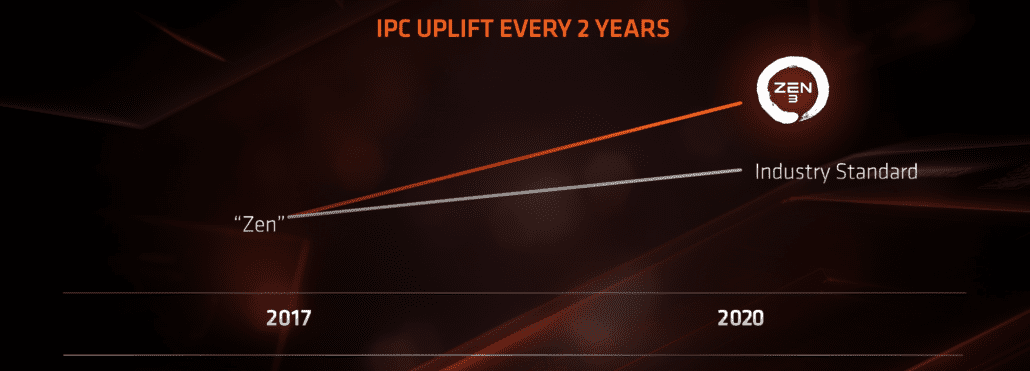
AMD has so far confirmed themselves that Zen 3 brings a brand new CPU architecture, which helps deliver significant IPC gains, faster clocks, and even higher core counts than before. Some rumors have even pointed to a 17% increase in IPC and a 50% increase in Zen 3’s floating-point operations along with a major cache redesign.
We also got to see a major change to the cache design in an EPYC presentation, which showed that Zen 3 would be offering a unified cache design which should essentially double the cache that each Zen 3 core could have access compared to Zen 2.
The CPUs are also expected to get up to 200-300 MHz clock boost, which should bring Zen 3 based Ryzen processors close to the 10th Generation Intel Core offerings. That, along with the massive IPC increase and general changes to the architecture, would result in much faster performance than existing Ryzen 3000 processors, which already made a huge jump over Ryzen 2000 and Ryzen 1000 processors while being an evolutionary product rather than revolutionary, as AMD unveiled very recently.
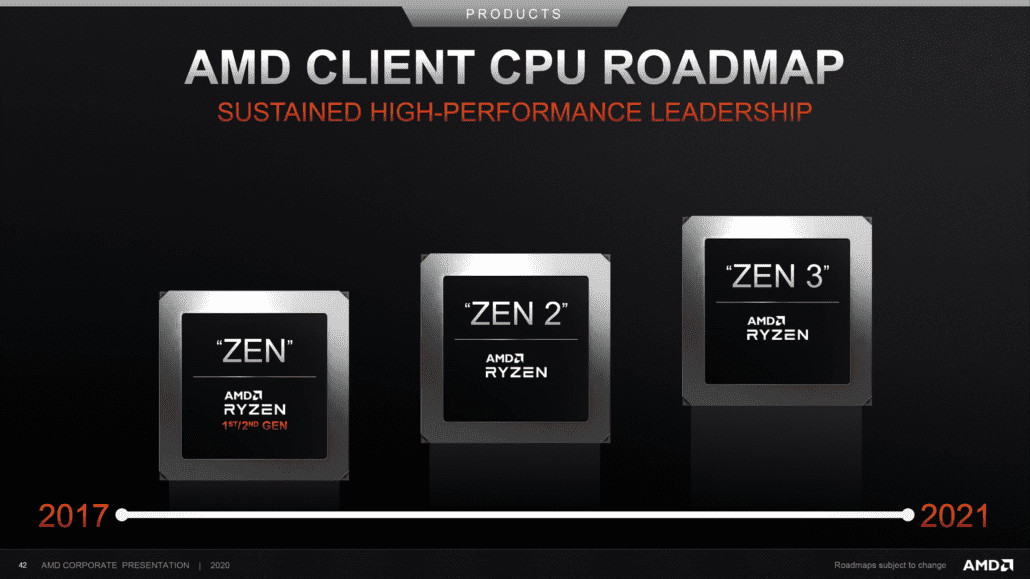
The key thing to consider is that we will get to see the return of the chiplet architecture and AMD will retain support on the existing AM4 socket. The AM4 socket was to last until 2020 so it is likely that the Zen 3 based Ryzen 4000 CPUs would be the last family to utilize the socket before AMD goes to AM5 which would be designed around the future technologies such as DDR5 and USB 4.0. AMD’s X670 chipset was also hinted as to arrive by the end of this year and will feature enhanced PCIe Gen 4.0 support and increased I/O in the form of more M.2, SATA, and USB 3.2 ports.
It was recently confirmed by AMD that Ryzen 4000 Desktop CPUs will only be supported by 400 & 500-series chipsets while 300-series support would be left out.
As for competition, the AMD Ryzen 4000 ‘Zen 3 Vermeer’ lineup would compete against Intel’s next-gen Rocket Lake-S desktop processors. Tackling the existing Intel Comet Lake-S won’t be so hard since the Ryzen 3000 CPUs are competitively positioned against the entire lineup as evident in our own review but Rocket Lake-S seems to be a major architectural uplift for Intel (although still based on 14nm process) which might just be Intel’s way back in the desktop mainstream market.
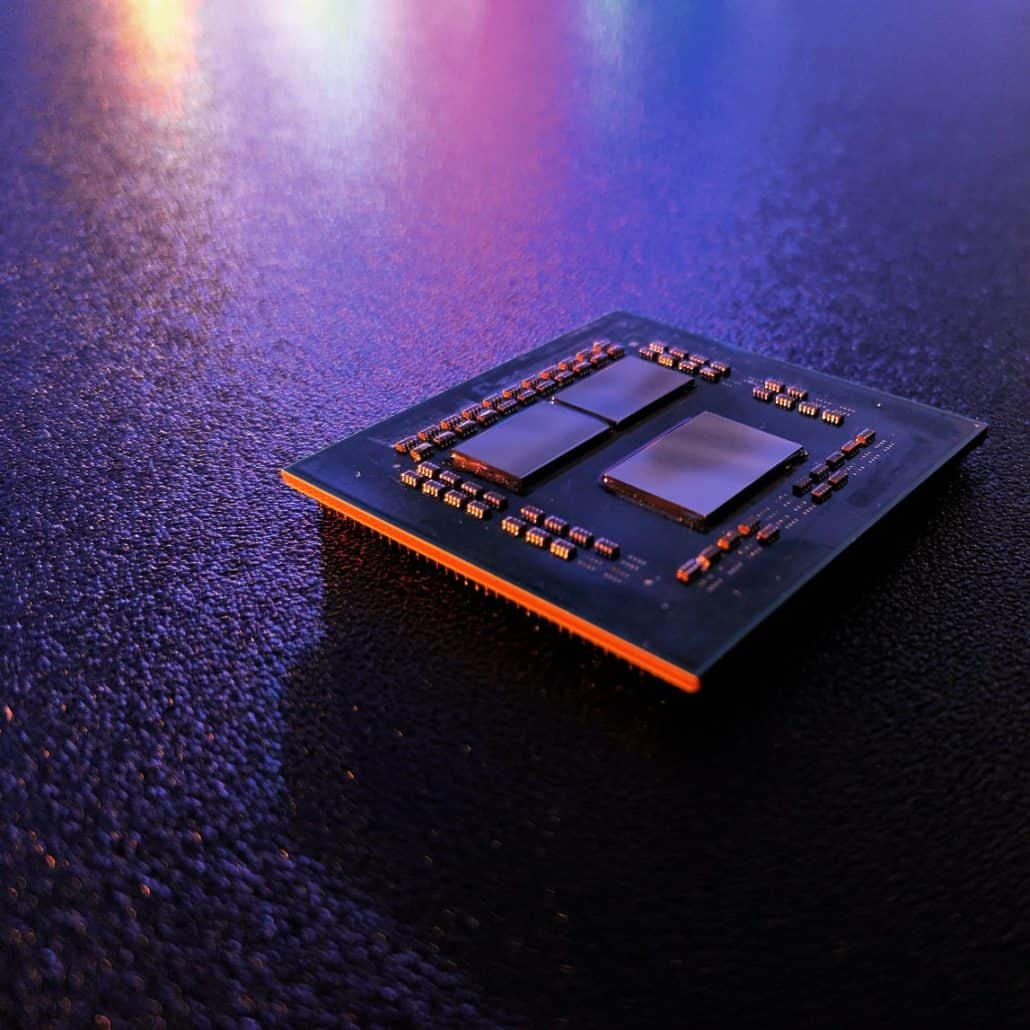
With that said, Rocket Lake-S is still something that needs to be evaluated prior to its release before we can call it a Zen 3 challenger but time would make it clear. As of now, the competitive advantage that AMD has with its Zen 2 based Ryzen 3000 is just way too big compared to whatever Intel has in their sleeves for this year and Zen 3 based Ryzen 4000 processors are going to push that envelope even further.
AMD CPU Roadmap (2018-2020)
| Ryzen Family | Ryzen 1000 Series | Ryzen 2000 Series | Ryzen 3000 Series | Ryzen 4000 Series | Ryzen 5000 Series | Ryzen 6000 Series |
|---|---|---|---|---|---|---|
| Architecture | Zen (1) | Zen (1) / Zen+ | Zen (2) / Zen+ | Zen (3) / Zen 2 | Zen (3)+ / Zen 3? | Zen (4) / Zen 3? |
| Process Node | 14nm | 14nm / 12nm | 7nm | 7nm+ / 7nm | 7nm+ / 7nm | 5nm / 7nm+ |
| Server | EPYC ‘Naples’ | EPYC ‘Naples’ | EPYC ‘Rome’ | EPYC ‘Milan’ | EPYC ‘Milan’ | EPYC ‘Genoa’ |
| Max Server Cores / Threads | 32/64 | 32/64 | 64/128 | 64/128 | TBD | TBD |
| High End Desktop | Ryzen Threadripper 1000 Series (White Haven) | Ryzen Threadripper 2000 Series (Coflax) | Ryzen Threadripper 3000 Series (Castle Peak) | Ryzen Threadripper 4000 Series (Genesis Peak) | Ryzen Threadripper 5000 Series | Ryzen Threadripper 6000 Series |
| Max HEDT Cores / Threads | 16/32 | 32/64 | 64/128 | 64/128? | TBD | TBD |
| Mainstream Desktop | Ryzen 1000 Series (Summit Ridge) | Ryzen 2000 Series (Pinnacle Ridge) | Ryzen 3000 Series (Matisse) | Ryzen 4000 Series (Vermeer) | Ryzen 5000 Series (Warhol) | Ryzen 6000 Series (Raphael) |
| Max Mainstream Cores / Threads | 8/16 | 8/16 | 16/32 | 16/32 | TBD | TBD |
| Budget APU | N/A | Ryzen 2000 Series (Raven Ridge) | Ryzen 3000 Series (Picasso Zen+) | Ryzen 4000 Series (Renoir Zen 2) | Ryzen 5000 Series (Cezanne Zen 3) | Ryzen 5000 Series (Rembrandt Zen 3) |
| Year | 2017 | 2018 | 2019 | 2020/2021 | 2020/2021 | 2022 |

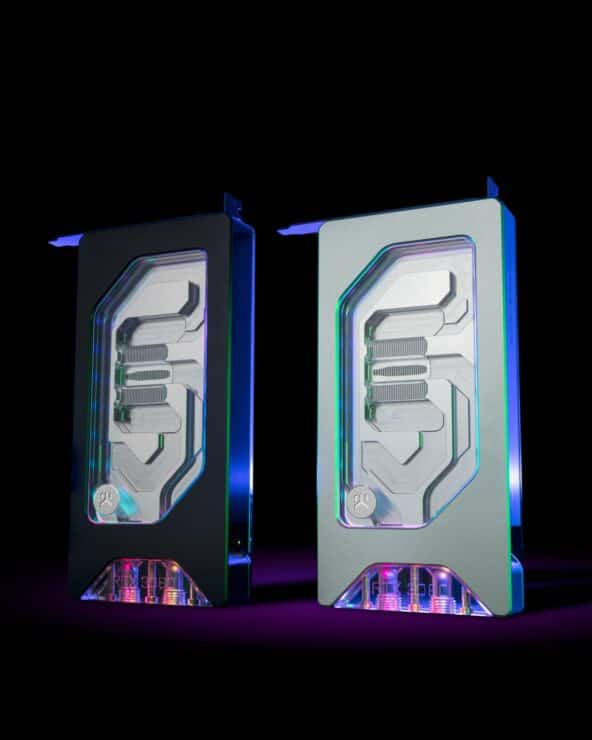


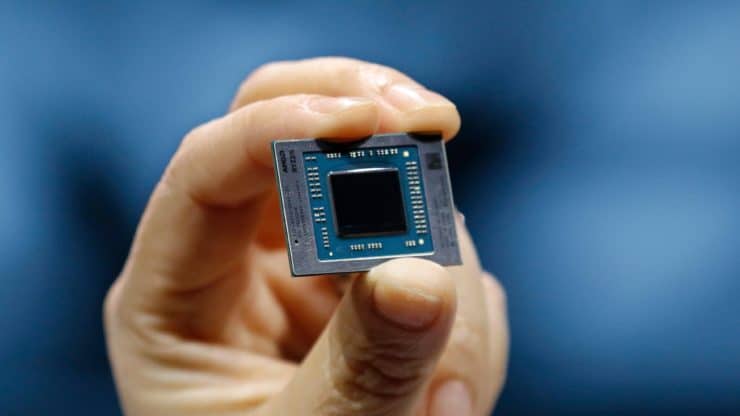
More Stories
EKWB Unveils The Quantum Vector FE RTX 3080 D-RGB – Special Edition Blocks For GeForce RTX 3080 FE Graphics Card
AMD Ryzen 7 5800H 8 Core & 16 Thread Cezanne ‘Zen 3’ High-Performance CPU Shows Up, Early ES Chip With 3.2 GHz Clocks
AMD Ryzen 9 5950X 16 Core Flagship CPU Benchmarked Again, Crushes Intel’s Top Core i9-10980XE 18 Core HEDT Chip